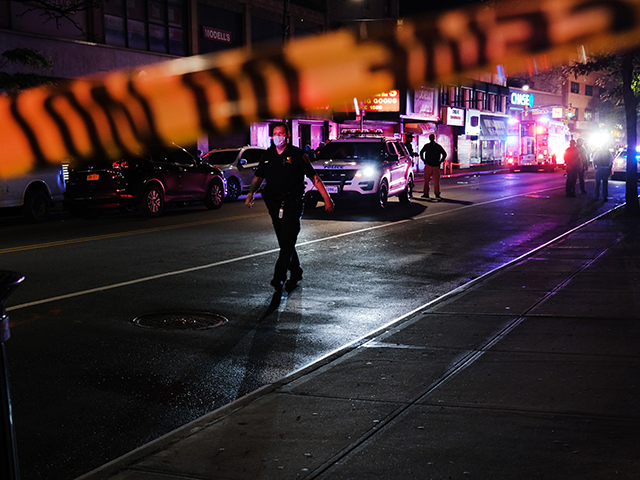One year after the defund police movement took off after the death of George Floyd while in police custody, leaders of U.S. cities are walking back plans to slash police budgets in the wake of surging crime across the country.
New York City Mayor Bill de Blasio is planning to reinstate $92 million to build a new precinct cut from the budget last year. From January 1 through May 23, 2021 there were 531 shootings in the city, up from 295 during the same period last year.
In Baltimore, Mayor Brandon Scott, who as a city councilman led efforts to cut the police budget by $22 million, is now proposing a $27 million increase.
In Oakland, California — where by mid-April the city had recorded 41 homicides, up from 13 over the same period last year — city lawmakers voted in April to put $3.3 million of the $29 million it had slashed back into the police budget.
“What’s missing in the defunding conversation is our city is facing a huge increase in violent crime,” Police Chief LeRonne Armstrong, said in a Wall Street Journal report.
Los Angeles Mayor Eric Garcetti wants an increase in police spending of about $50 million after the city cut $150 million last year.
The Journal reported on the reverse of the trend:
In the nation’s 20 largest local law-enforcement agencies, city and county leaders want funding increases for nine of the 12 departments where next year’s budgets already have been proposed. The increases range from 1 percent to nearly 6 percent. Many U.S. cities are led by Democrats who supported protesters’ calls to defund the police—a term that activists have used in different ways, including to push for simply shrinking the size of police forces but also shifting resources from law enforcement to social services. The demonstrations, led by Black Lives Matter and allied groups, followed the murder of George Floyd by a Minneapolis police officer last year.
But city officials have found it difficult to keep police budgets down after seeing a rise in crime over the past year, with murder rates up by double digits in many cities. In the last three months of 2020, homicides rose 32.2% in cities with a population of at least one million, according to the Federal Bureau of Investigation’s Quarterly Uniform Crime Report. Law-enforcement officials and criminologists say pandemic stress and a police pullback amid protests are likely contributors.
Last year, the defund movement coincided with a drop in tax revenue caused by Covid-19 shutdowns. With the pandemic fading, many local governments now have more resources due to an economic revival and federal stimulus dollars. Some city officials and law-enforcement leaders also note that changes intended to reform policing, such as enhanced training for officers, can be costly to implement. And some neighborhood groups worried about police cuts amid the rise in crime.
“It’s hard to have a serious conversation with folks about cutting a police department’s budget when crime is up,” Philadelphia’s former Mayor Michael Nutter (D), said in the Journal report.
Anti-police groups have fueled the defund movement. Interrupting Criminalization, a Barnard Center for Research on Women campaign to defund police, succeeded in getting $840 million in police spending cuts across the U.S. and $160 million in diverting police funds to other social programs.
Many cities also cut resource officers at schools. According to a statement from the National Association of Secondary School Principals:
It is important to note that there is a distinction between a police officer or security guard hired to work in a school and an SRO [school resource officer], who is selected, specially trained, and assigned to protect and serve the education environment. SROs contribute to the safe-schools team by ensuring a safe and secure campus, educating students about law-related topics, and mentoring students as informal advisers and role models.
“As part of their role as informal advisers, SROs maintain open-door policies toward students and school staff, engage in mentoring sessions, and refer students or educators to social services, legal aid, community services, and public health agencies,” the statement said.
Follow Penny Starr on Twitter or send news tips to pstarr@breitbart.com

COMMENTS
Please let us know if you're having issues with commenting.